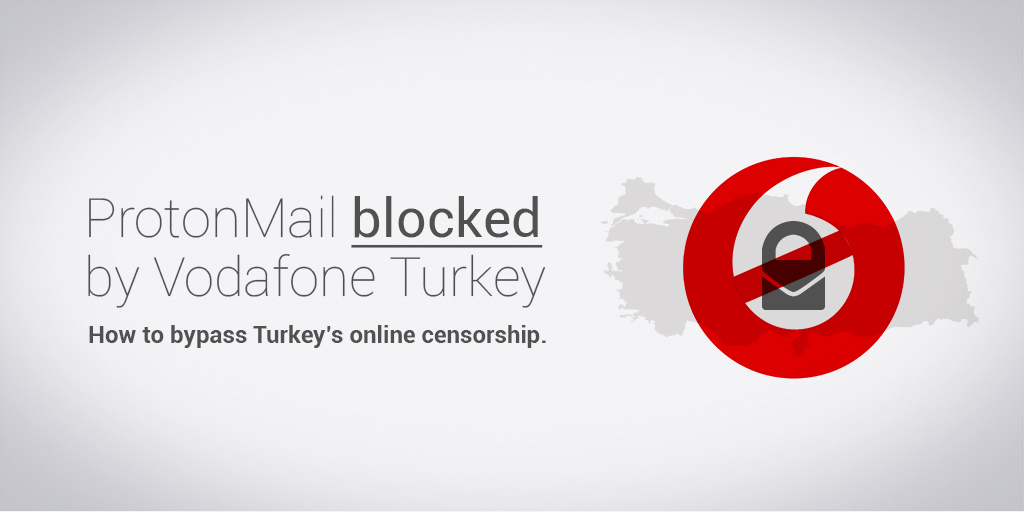Turkey Blocks ProtonMail E2E Encrypted Email Service
ProtonMail was able to confirm reports from its users that its service is currently blocked by ISPs in Turkey due to a government order. ProtonMail is one of the more popular end-to-end encrypted email services, which allow users to encrypt their emails with their own keys, making it difficult for government surveillance or interception to happen.
How ProtonMail Was Blocked In Turkey
ProtonMail first saw reports of its service being blocked by Vodafone Turkey from some of its users. It later received other reports from users of other ISPs in Turkey that ProtonMail was not working for them.
At first the company believed it may be a glitch, similar to the one it had just last week. However, it turned out that the Turkish government issued a censorship order against the service. The Turkish government has censored tens of thousands of websites in the past few years, including YouTube, Facebook, Twitter, and Wikipedia, although some of these popular services were only blocked or throttled temporarily.
The blocking is usually done at the DNS level, which means it’s also relatively easy for users to bypass it, as long as they know how to change their DNS servers. Sometimes the ISPs resort to doing local DNS poisoning, as well as intercepting requests going to well-known DNS servers that users might choose, such as Google’s DNS servers.
ProtonMail confirmed that this is the type of DNS blocking Turkey used against its service. The company contacted Vodafone Turkey, but it hasn’t received any response from the ISP yet. ProtonMail said it’s now working behind the scenes to have the service unblocked, and that it learned that the blocking was ordered against multiple websites on March 12.
Vodafone, which has a track record of complying with censorship and surveillance requests from governments, represents over 30% of Turkey's mobile market and is also a leading fixed-line provider in the country.
How To Use ProtonMail In Turkey Right Now
Until ProtonMail figures out how to get its service unblocked, it laid out a few options that can allow its Turkish users to continue to use its service.
Get Tom's Hardware's best news and in-depth reviews, straight to your inbox.
Use A VPN Service
You can use any VPN service you want, or you can opt for ProtonMail own ProtonVPN service, which is provided for free to those who want to avoid censorship. VPN services tend to encrypt DNS requests, too, so any DNS-level blockade should be bypassed.
However, the Turkish government is apparently preparing to ban VPN services in the country, too, so ProtonVPN would be at risk of being blocked as well. If ProtonVPN is blocked, ProtonMail suggested using public servers at VPNGate. As with all blacklists, someone would have to block all of these servers manually, so this would essentially turn into a cat and mouse game.
Change Your DNS Server
Because ProtonMail is blocked at the DNS level, you may still be able to unblock the service by changing your DNS server. ProtonMail suggested the list of popular DNS servers at Lifewire, or you could also opt for the privacy-focused DNS servers at the OpenNIC Project.
Use Tor
The last option, and perhaps the most resilient as well, is using the Tor browser to circumvent censorship and keep your browsing habits anonymous in Turkey. As the Turkish government has been trying to censor Tor, too, you may need to use Tor bridges to connect to the Tor anonymity network.
ProtonMail said its service is one of the few email services to even have an .onion address on the Tor network at: protonirockerxow.onion.
The company added that it will continue to fight censorship and surveillance in various countries, as this has been been the reason for the service’s existence from the start.
Lucian Armasu is a Contributing Writer for Tom's Hardware US. He covers software news and the issues surrounding privacy and security.
